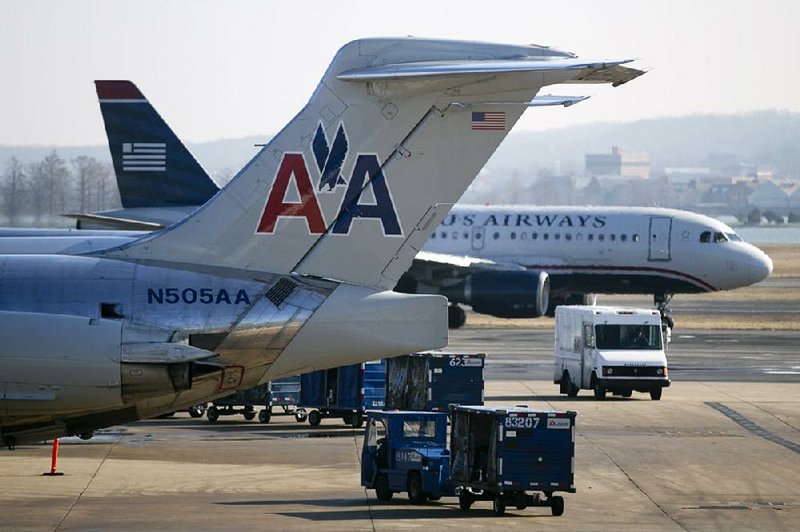LITTLE ROCK — For the corporate takeover business, the last half decade was a fallow period. But in the opening weeks of 2013, merger activity has suddenly roared back to life.
On Thursday, Berkshire Hathaway, the conglomerate run by Warren Buffett, said it had teamed up with Brazilian investors to buy the ketchup maker H.J. Heinz for about $23 billion. And American Airlines and US Airways agreed to merge in a deal valued at $11 billion.
Those transactions come a week after a planned $24 billion buyout of the computer company Dell by its founder, Michael S. Dell, and private equity backers.And Liberty Global, the company controlled by the billionaire media magnate John C. Malone, struck a $16 billion deal to buy the British cable business Virgin Media.
“Since the crisis, one by one, the stars came into alignment, and it was only a matter of time before you had a week like we just had,” said James B. Lee Jr .,the vice chairman of JPMorgan Chase.
Bankers and lawyers remain circumspect, warning that it is still too early to declare a mergers-and-acquisitions boom like those during the junk-bond craze of 1989, the dot-com bubble of 1999 and the leveraged-buyout bonanza of 2007.
They also say that it is important to pay heed to the excesses that developed during these moments of merger mania, which all ended badly.
A number of factors have created a stronger market and have driven the recent wave of deal-making. Most visibly, the stock market has been on a tear, with the Standard & Poor’s 500-stock index this week briefly hitting its highest levels since November 2007.
Higher share prices have buoyed the confidence of chief executives who are looking for ways to expand their businesses.
A number of clouds that hovered over the markets last year have also been removed, eliminating the uncertainty that hampered deal-making.
A central reason for the return of big transactions is the mountain of cash on corporate balance sheets.
After the financial crisis, companies hunkered down, laying off employees and cutting costs. As a result, they generated savings.
Today, corporations in the S&P 500 are sitting on more than $1 trillion in cash.
With interest rates near zero, that money is earning very little in bank accounts, so executives are looking to put it to work by acquiring businesses.
The private equity deal making machine is also revving up again. The world’s largest buyout firms have hundreds of billions of dollars of “dry powder” - money allotted to deals in Wall Street parlance - and they are on the hunt.
The proposed leveraged buyout of Dell, led by Michael Dell and the investment firm Silver Lake Partners, was the largest private equity transaction since July 2007, when the Blackstone Group acquired the hotel chain Hilton Worldwide for $26 billion just as the credit markets were seizing up.
But perhaps the single biggest factor driving the return of corporate takeovers is the banking system’s renewed health.
Corporations often rely on bank loans for financing acquisitions, and the ability of private equity firms to strike multi-billion dollar transactions depends on the willingness of banks to lend them money.
For years, banks, saddled by the toxic mortgage assets weighing on their balance sheets, turned off the lending spigot.
But with the housing crisis in the rearview mirror and economic conditions slowly improving, banks are again lining up to provide corporate loans at record-low interest rates to finance acquisitions.
The banks, of course, are major beneficiaries of megadeals, earning big fees from both advising on the transactions and lending money to finance them.
Mergers and acquisitions in the U.S. total $158.7 billion so far this year, according to Thomson Reuters data, more than double the amount in the same period last year.
JPMorgan, for example, has benefited from the surge, advising on four big deals in recent weeks, including the Dell bid and Comcast’s $16.7 billion offer for the rest of NBC Universal that it did not already own.
Buffett, in a television interview last month, declared that the banks had repaired their businesses and no longer posed a threat to the economy.
“The capital ratios are huge,” said Buffett, whose acquisition of Heinz will be his second-largest acquisition, behind his $35.9 billion purchase of a majority stake in the railroad company Burlington Northern Santa Fe in 2009.
Information for this article was contributed by Michael J. de la Merced of The New York Times.
Business, Pages 27 on 02/16/2013
